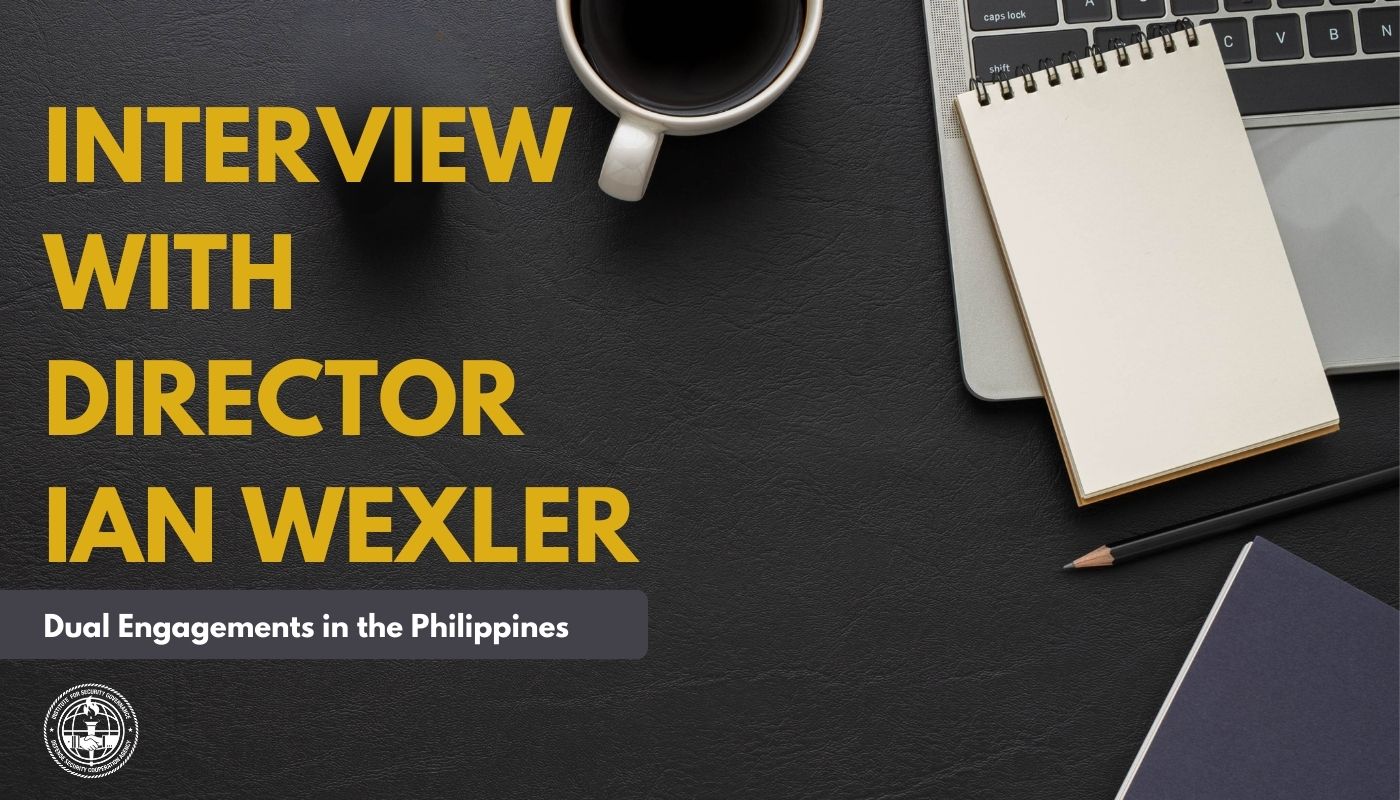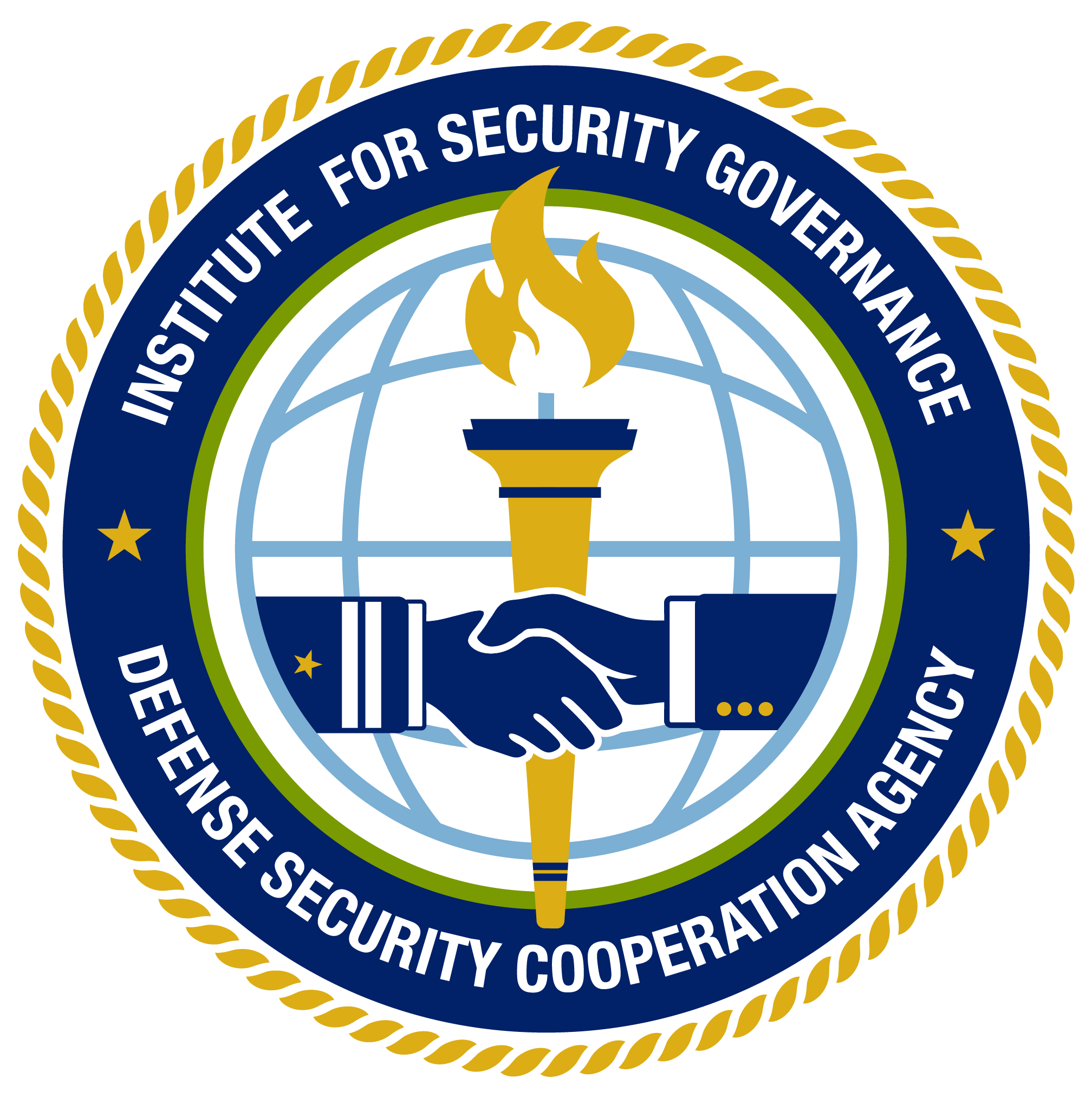INTERVIEW WITH DIRECTOR IAN WEXLER: DUAL ENGAGEMENTS IN THE PHILIPPINES - Defense Security Cooperation University

Feb 28, 2024
INTERVIEW WITH DIRECTOR IAN WEXLER: DUAL ENGAGEMENTS IN THE PHILIPPINES
Institute for Security Governance (ISG) Director Ian Wexler recently travelled to the Philippines to observe an ISG Non-Resident Advising Institutional Capacity Building (ICB) engagement and a bilateral Mobile Education Training (MET) course. The interview below provides insight into his direct engagement in the field, his reflections on ISG’s ICB efforts in the Indo-Pacific and with the Philippines specifically, his assessment of how our work and colleagues were received, the impact of this trip on his strategic thinking, and his agenda for the future as ISG’s senior leader.
In January 2024, ISG simultaneously conducted a multi-Line of Effort (LoE) ICB engagement with the Armed Forces of the Philippines (AFP) as well as a “Principles of Defense Acquisition Management” bilateral MET. When asked why he prioritized traveling to observe these activities early in his tenure, Director Wexler explained:
As Director of ISG, I believe it is my responsibility to get out in the field with some regularity and to see the great work we are doing with our partners. The only practical way I know how to get this experience is to get out from behind my desk and into the field to see the mission firsthand.
To be most effective at my job, I need to have a better understanding of the ISG mission and how our personnel go about their business in effectuating Security Cooperation. Direct engagement gives me a clear sense of our relationships with the respective Embassies and our other key partners. It also gives me an opportunity to engage with our “customers,” as I believe we are a customer-focused organization.
While on mission, I can address ISG mission-related questions, particularly with Office of Defense Cooperation (ODC)/Security Cooperation Office (SCO) personnel and senior partner nation security officials. It gives me a better sense of how we are perceived and whether what we are doing in a particular country is truly value added. Finally, this trip enabled me to get a real sense of partner will and the absorptive capacity of our programs by interacting with our staff and in-country partners.
When asked about his major takeaways from ISG’s Institutional Capacity Building work with this partner specifically, and in the Indo-Pacific region more generally, he gave the following account:
I intentionally chose to go to the Philippines as my first trip since they are a key Security Cooperation partner of the United State Government, particularly as it relates to our current and future efforts in the Indo-Pacific region. Inarguably, there are few partner relationships for ISG and for the Department of Defense across the globe that are more important than our relationship with the Philippines military.
ISG has several significant, high-profile lines of effort in the Philippines, and I was interested in seeing the progress we were making in those endeavors firsthand. I also wanted to show our security partners that ISG highly values our programs in the Philippines, and that we were focused on achieving our agreed upon objectives in partnership with them.
With respect to the colleagues who led the in-country activities, the work that they led, and how it was received, Director Wexler offered the following observations:
I was highly impressed with both our ICB team, led by Indo-Pacific Regional Program Lead Mr. Alan Johnson, and by our MET team, led by IDARM Functional Practice Lead Ms. Samantha Schwellenbach.
Alan led a high-end team of contracted subject matter experts SMEs in their respective fields, from acquisition specialists and intelligence professionals to logistics SMEs. The team even included the former Chief of Staff of the Philippine Military. Truly, everyone on the team was top notch and was able to effectively contribute in their respective area of expertise.
I was also highly impressed by Alan’s leadership of such a large and experienced team that was engaged simultaneously with multiple lines of efforts. Alan led with a deft touch. It was abundantly clear that Alan was leading the engagement and had a firm grasp of all relevant details of each line of effort. In addition, as a combined ICB mission, the ICB work included legal subject matter expert, Mr. John Cherry, from sister DSCU component, Defense Institute for International Legal Studies. John effortlessly added to the team dynamic by providing a much-needed discussion on the law as it relates to armed conflict.
I was also exceedingly impressed when I got a chance to spend the day with Samantha’s class of acquisition professionals at the former Clark Air Base. The course material was highly practical, and the students were enthusiastic in presenting individual and group work to the class. I am not sure I have seen that level of excitement and motivation in a Mobile Education Training course before, particularly at the tail end of a 2-week course.
Multiple students I talked to were extremely impressed and pleased with Samantha and her highly qualified adjuncts. Even more importantly, they expressed that the IDARM course material was highly relevant and useful to further educate and train them as acquisition professionals to support the Philippine military during a critical period in its modernization.
Regarding the impact of this experience on his strategic outlook in leading the Institute, Director Wexler explained:
This trip certainly affirmed that I need to continue to see the great work our folks are doing out in the field. I also found it to be a fantastic learning experience for me personally on the diverse lines of effort that we maintain.
Additionally, by having a better understanding of our field work, I can communicate more effectively with our external constituents in Congress and in the Department on relevant issues that they often engage us on. This engagement also reinforced the need for me to directly interact with our partners. Nothing beats a face-to-face discussion, which is what I received in the Philippines both with our ODC and partner nations senior officials.
I also want to continue to get transparent feedback on the work that ISG is doing. While ISG efforts in the Philippines were overwhelmingly positive, I am not afraid of thoughtful and constructive criticism. That’s how an organization improves.
On a more tactical and operational level, I would like to see how we can better synchronize efforts between our MET teams and some of our ICB lines of effort. Samantha and Alan are doing just that in the Philippines, and I think it’s a wise move for us to consider across our organization. It seems there is a great value in ensuring that all ISG personnel engaged in advising, education, and professional development understand one another’s role and can complement one another in terms of scheduling courses, identifying specific students to attend courses, and holding ICB events such that the courses and the ICB work are mutually supportive.
Finally, the Director was asked to project forward what’s next on the docket for him out in the field. He offered these thoughts:
Given that we are a geographically dispersed organization, I believe it is incumbent upon me and upon our supervisors to get out in the field to see the great work that we do. I plan on doing that as much as possible going forward and hope to visit priority countries in each region.
In a perfect world, during my tenure as Director of the Institute, I will be able to see all of our personnel out in the field doing their jobs. That said, wherever there is a key partner relationship that our staff believes that having the ISG Director on the team adds real value to a key line of effort, I am willing to go (with plenty of advanced planning). I believe that having a senior member of the ISG team on an engagement is another tool in our ISG toolbox to build or enhance key relationships with our Security Cooperation partners that may be at a critical juncture in that relationship. If I can help move the ball down the field, I would be happy to do so. I see that as a critical part of my job. I defer to the ISG staff on recommending trips.
Thank you to Director Wexler for providing such color and detail into his trip to the Philippines, and how it has influenced his thinking going forward. There is no doubt that his participation added significant gravitas to the already important work taking place with our Philippine partners. We look forward to gaining similar insights from the Director throughout his tenure.

